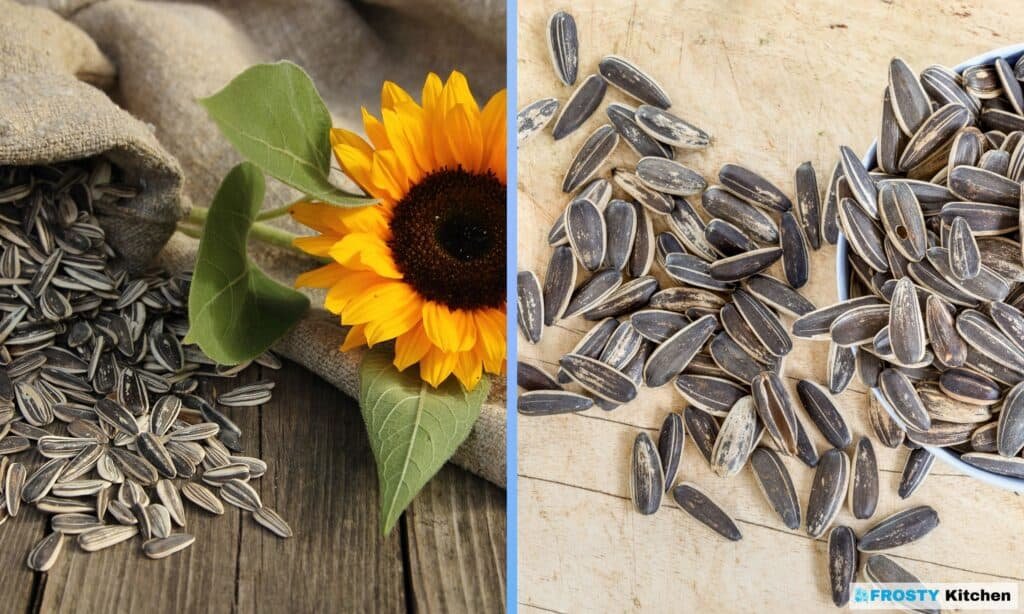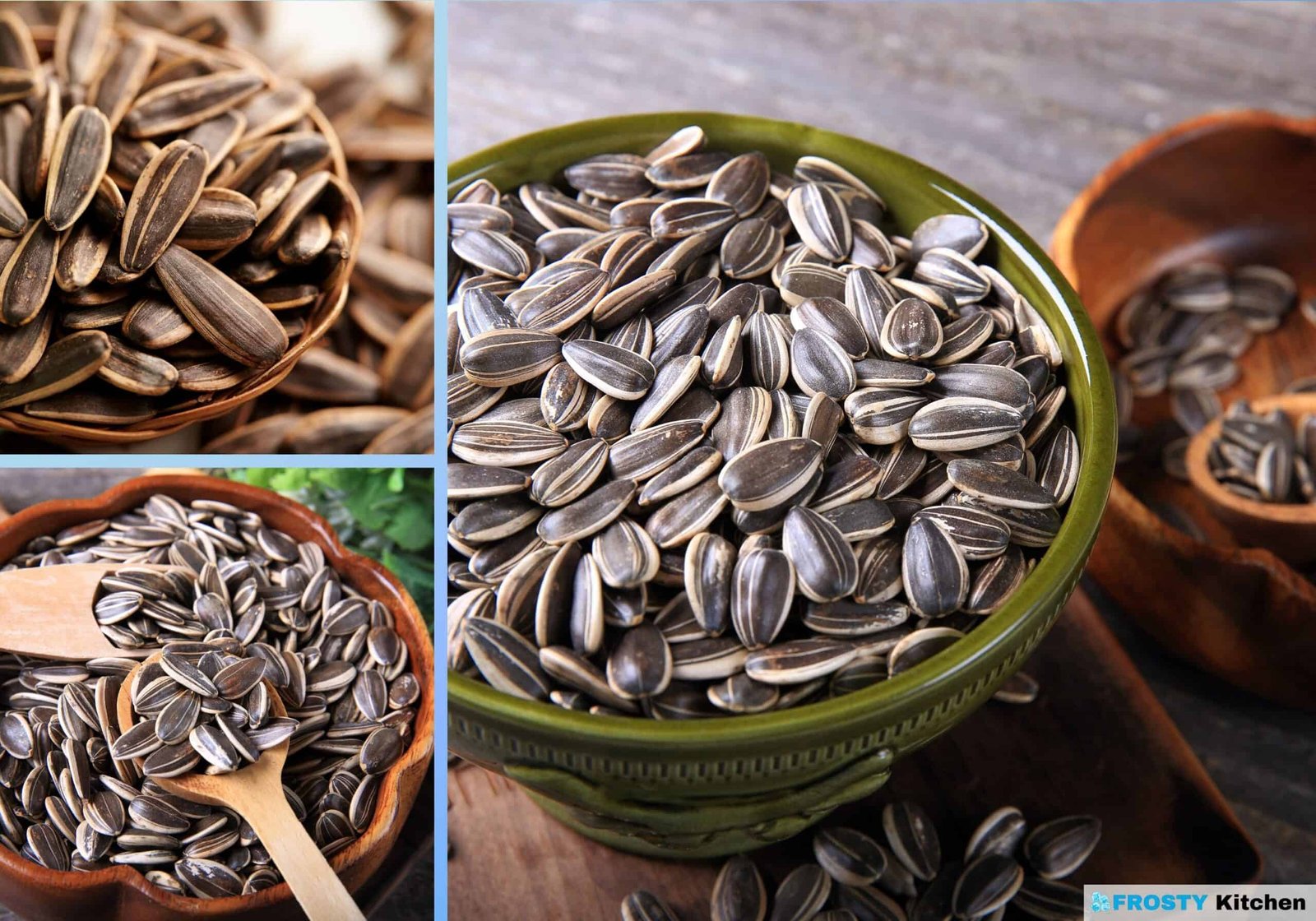Sunflower seeds, known for their nutty taste and crunchy texture, are a cherished snack and ingredient in numerous cuisines globally. Scientifically named Helianthus annuus, sunflower seeds have been cultivated for thousands of years, with origins tracing back to North America. Freezing sunflower seeds is an effective way to extend their shelf life while maintaining their nutritional goodness and delightful crunch. This article unveils the origins, benefits, and a meticulous guide on freezing sunflower seeds effectively.
What are Sunflower Seeds?
Sunflower seeds come from the sunflower plant, which is renowned for its large, bright yellow flowers. These seeds are encased in a black or gray shell, which can be cracked open to reveal the edible kernel inside, often enjoyed roasted and salted.
Origin and History
- Sunflower seeds are native to North America, with archaeological evidence indicating that indigenous communities cultivated them as far back as 3000 BC. They were revered for their aesthetic, nutritional, and medicinal value.
- The cultivation of sunflower seeds spread to Europe in the 16th century and gradually to other parts of the world, becoming a global agricultural commodity. Today, Russia and Ukraine are among the largest producers of sunflower seeds.
Nutritional Value
- Sunflower seeds are nutritional powerhouses, providing a good source of protein, fiber, and healthy fats. They are particularly rich in Vitamin E, a potent antioxidant, and also contain a variety of B vitamins and minerals such as magnesium, selenium, and zinc.
- Additionally, sunflower seeds have plant compounds like phytosterols and phenolic acids, which may contribute to their antioxidant properties, potentially offering health benefits such as reduced inflammation and cholesterol levels.
Benefits of Freezing Sunflower Seeds
Freezing sunflower seeds offers numerous advantages:
- Preservation of Nutrients: Freezing helps in retaining the essential nutrients present in sunflower seeds, ensuring that their health benefits remain intact.
- Extended Shelf Life: Freezing extends the shelf life of sunflower seeds, allowing for a longer storage period without losing their quality.
- Maintaining Freshness and Texture: The freshness and crunchy texture of sunflower seeds are well-preserved when frozen properly, providing a high-quality snack or ingredient for various dishes.
Preparing Sunflower Seeds for Freezing
- Packaging: Utilize airtight, freezer-safe containers or vacuum-sealed bags to keep sunflower seeds fresh and to prevent moisture exposure.
- Portioning: Divide sunflower seeds into usable portions to easily retrieve the amount needed for snacking or recipes.

Step-by-Step Guide to Freezing Sunflower Seeds
Freezing sunflower seeds is a practical approach to preserve their crunch and nutritional value. There are several methods to freeze sunflower seeds, each with its unique benefits. It’s important to choose a method that suits your convenience and the availability of resources.
Method 1: Freezing Without a Vacuum Sealer
- Preparation: Ensure sunflower seeds are clean and dry.
- Storage: Transfer sunflower seeds into airtight containers or sealed plastic bags.
- Freezing: Place the containers or bags in the freezer.
Method 2: Freezing With a Vacuum Sealer
- Preparation: Same as Method 1, ensure sunflower seeds are clean and dry.
- Vacuum Sealing: Place sunflower seeds in vacuum seal bags, use a vacuum sealer to remove all air, and then seal the bags.
- Storage: Label the bags with the date and place them in the freezer.
Refreezing Sunflower Seeds
Refreezing sunflower seeds is not advisable as it can lead to a loss of freshness and possibly affect the texture and flavor.
Storage Duration and Factors Affecting it
- Duration: Frozen sunflower seeds can be stored for up to 12 months, depending on various factors.
- Factors: Factors such as the initial freshness of sunflower seeds, the method of freezing, and the consistency of the freezing temperature can affect the storage duration.
Frequently Asked Questions
Q1: How can I use frozen sunflower seeds?
- Frozen sunflower seeds can be used directly from the freezer without any need for thawing. They can be added to salads, yogurts, baked goods, or enjoyed as a crunchy snack.
Q2: Do sunflower seeds go bad?
- Yes, like most seeds and nuts, sunflower seeds can go bad over time especially if exposed to air, moisture, or high temperatures. However, proper storage methods like freezing can significantly extend their shelf life.
Q3: Can I freeze roasted sunflower seeds?
- Yes, roasted sunflower seeds can be frozen to prolong their shelf life. The freezing process helps to maintain their crunchy texture and rich, nutty flavor.

